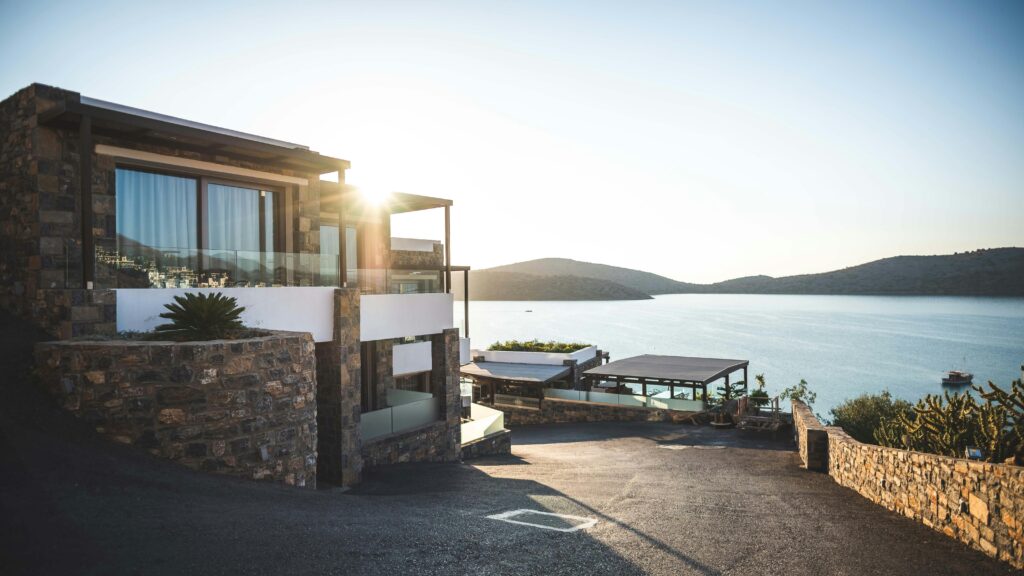Buying Real Estate Overseas: A Lifestyle Investment or Financial Trap?
By donna9376 / June 19, 2025 / No Comments / Home Improvement & Lifestyle

Buying property abroad is a lifelong dream for many—a sunlit villa in Italy, a beachfront condo in Thailand, or a rustic farmhouse in Portugal. It promises the romance of a slower pace, fresh scenery, and possibly a new chapter in life. But is buying real estate overseas a brilliant lifestyle investment or a risky financial trap?
This guide breaks down the realities of overseas property investment—the lifestyle perks, financial upsides, hidden pitfalls, and innovative strategies to help you decide whether that international dream home is truly worth it.
Part 1: The Lifestyle Allure of Owning Property Overseas
1.1 The Romance of Location Waking up to the scent of jasmine in a Moroccan riad, sipping coffee on a Greek island terrace, or watching sunsets in Bali—lifestyle dreams sell the dream of owning property abroad. Cultural richness, slower living, and stunning surroundings are the top draws.
1.2 More Bang for Your Buck
Compared to U.S. and UK prices, your money often goes further in other countries. In many parts of Eastern Europe, Southeast Asia, or Latin America, you can buy a whole property for the cost of a city studio.
1.3 A Base for Long-Term Travel
An overseas home becomes your travel hub. Many nomads and semi-retired couples utilize their overseas property as a winter home, an income source, or a base for exploring a region.
Part 2: The Financial Realities of Buying Abroad
2.1 Is It an Investment?
Unlike traditional investing, international property is neither liquid nor fast appreciating. It requires maintenance, taxes, and effort. The return may be lifestyle, not just profit.
2.2 The Rental Potential
In tourist hotspots, Airbnb and vacation rentals can offset your costs or even turn a profit. Research rental laws carefully—some cities have cracked down on short-term lets.
2.3 Currency & Market Fluctuations
Currency drops can affect your property’s value and your ability to cover expenses. A strong dollar might help you buy cheap now, but sell weak later.
2.4 Financing Challenges
Obtaining a mortgage in a foreign country can be notoriously challenging for non-citizens. Many buyers are required to pay cash or arrange financing through their bank.
Part 3: Legal, Bureaucratic & Practical Hurdles
3.1 Foreign Ownership Rules
Some countries restrict property purchases to residents or impose limits on the types of land that can be purchased. Always check local law before engaging.
3.2 Taxes and Double Taxation
Foreign property often comes with new tax responsibilities, including local property taxes, capital gains, and potential double taxation.
3.3 Title Deeds & Legal Protections
Not all countries offer clear land registries or buyer protections. Fraud and scams can be common. A local lawyer is essential.
3.4 Renovation and Local Contractors
Home improvement isn’t easy when you’re 5,000 miles away. Language barriers and construction standards may differ significantly.
Part 4: Smart Strategies for Overseas Property Success
4.1 Rent Before You Buy
Live in the area for 6 months before committing. Learn local rhythms, meet neighbors, and decide if it’s really for you.
4.2 Hire a Bilingual Real Estate Lawyer
Your most important ally. They review contracts, verify titles, and help you avoid costly mistakes.
4.3 Consider Property Management
If you won’t live there full-time, hire local help for security, cleaning, and guest management.
4.4 Choose the Right Region
Look for areas with stable politics, healthcare, and expat-friendly services. Portugal, Costa Rica, and parts of Mexico are current hotspots.
Part 5: Real Buyer Stories—Dream or Disaster?
Success Story:
Emma, a British retiree, purchased a home in Portugal’s Algarve after conducting a year of thorough research. Her property appreciated 18% in two years, and she rents it out during peak seasons.
Cautionary Tale:
John, an American buyer, purchased a beach house in Thailand without checking zoning laws. He later learned that foreigners couldn’t own land outright and lost money selling it.
Conclusion: Dream Smart, Not Just Big
Buying property overseas can be a life-enhancing investment—if done with strategy and caution. Balance your emotions with facts. Ask tough questions. Get legal advice. And most importantly, visit more than once before making a purchase.
The world is vast, and your dream home may be waiting. Just make sure you pack a healthy dose of due diligence along with your passport.
